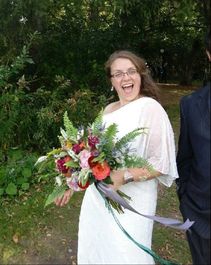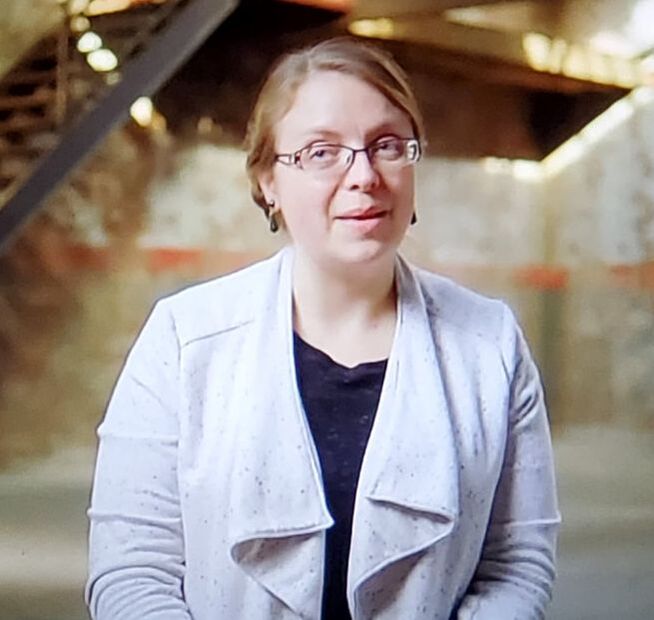 So, less than a month ago, I got married! It was a beautiful, too-hot day (ugh) that resulted in an almost-rained-on-but-not outdoor ceremony and a reception in a beautiful historic barn (because, where else does a food historian get married?). Almost exactly 100 of our friends and family came for the feast, and what a feast it was! Not everything went as planned (does it ever?), but it was a wonderful, beautiful, all-too-short day I'll never forget. Since my last update, I've given three more talks and one conference panel and most importantly, heard back from peer review on my book manuscript. I let myself be upset for 24 hours about how my "perfect" work was being "criticized!" and then I got down to the business of realizing what every writer - academic or not - should know: that peer review and the editing process are in place to HELP you. And help they have. Now that the wedding is over and the weather is FINALLY turning cool and autumnal, I find myself in the place I am every fall - feeling academic-ish and wanting to cozy up on the couch with a down comforter, some books, and my laptop to tippy tap my way into writing. I spent this past Saturday frantically photographing five scrapbooks from the Erie County Food Administration (in just four hours!) and finding out all kinds of fun things about the bureaucracy built around keeping restaurants and food businesses in line with federal regulations, as well as some of the interesting and sometimes terrifying things that happened after the war with the High Cost of Living (a.k.a. "H.C.L."). I've also discovered that all of the National Archives and Records Administration holdings for the New York State food administrators (including county food conservation agents!) are held, not in New York, which technically "owns" them, but in Pennsylvania. So I may have to try to squeeze a research trip or two, one way or another, to either NYC (yay interarchive loan!) or PA. Alas, with a full-time job and second deadline looming, I find myself in the trap of many history researchers - "Just let me track down one more lead! Just one more! Then I'll be done! I promise!" Lol. Research is an addiction sometimes - you keep finding more cool stuff! But analyzing it and writing it down so other people can learn about your findings is the ultimate goal, and one I'm trying to stay on track with. Thankfully, I had the sense to print out my original manuscript in full at the beginning of the summer so I could better understand my reviewer comments and also get my edits down on hard copy. Despite my love of digitization and my use of digital resources in my research, I still find it easiest to read hard copies, especially for editing. I got myself a set of 8 different colored pens, assigned them different properties (red for grammatical and spelling edits, black for rewrites, purple for images and illustrations, turquoise for contextual notes, green for citations, and orange to move sections around - pink and blue went unused) and went through all 280 pages. Since then, I've also had comments from another reader and I'm diving back into the editing process. Did I mention I'm also going to try to add recipes to each chapter? So fun. Until I got my peer review back, I never really understood the value of editing in writing, despite having excellent editors for my MA thesis. I thought it was a necessary evil, but now I see how crucial the editing process is to good writing. I wish all publishers required peer review and/or experienced content editors for their history books - the historiography would be a lot stronger for it, and I could stop being annoyed/frustrated by published books that so desperately need editing. Here's to a stronger, better, more informative book. Even if it gets published a year later than I originally thought. Cheers, Sarah
1 Comment
|
AuthorSarah Wassberg Johnson has an MA in Public History from the University at Albany and studies early 20th century food history. Archives
July 2024
Categories
All
|

 RSS Feed
RSS Feed